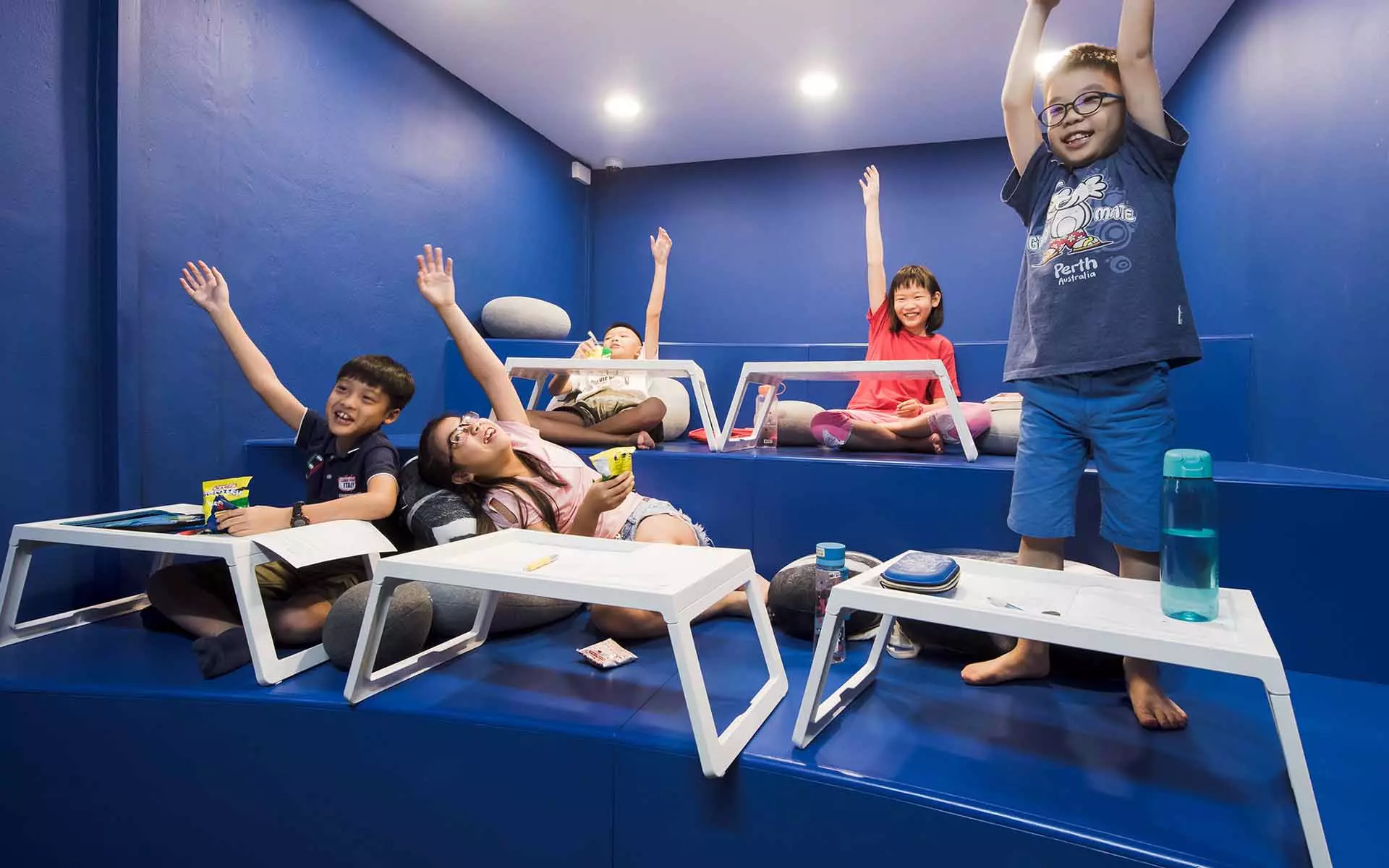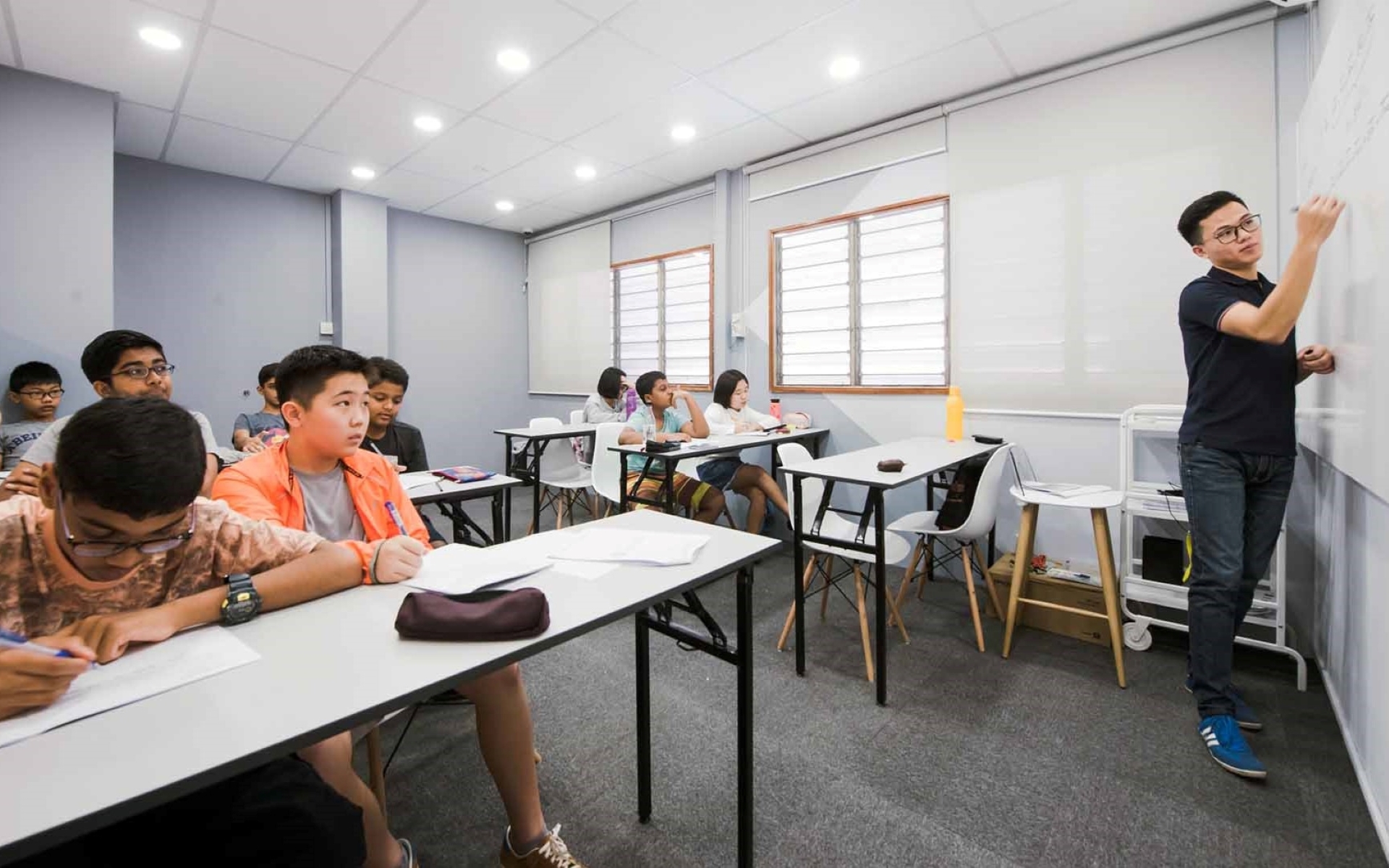The first quarter of 2026 marks an exciting and highly competitive period for Math Olympiad participants. Between January and March 2026, students across Singapore will take part in a series of prestigious Math competitions: SEAMO X, AMC, SASMO, RMO, SMKC, and APMOPS.
For many, success in these contests begins months in advance at a Math Olympiad tuition centre, where students receive structured coaching designed to sharpen problem-solving skills, strengthen mathematical foundations, cultivate critical thinking and build exam confidence.
This article examines how Math Olympiad training enables students to prepare strategically for various levels and formats, while fostering critical thinking and a growth mindset that are essential for success in competition.
Key Takeaways
- Prepare for a full competition season: Multiple Math Olympiads take place between January and March.
- Train for skills, not just content: Math olympiad training develops critical thinking, problem-solving, and exam readiness for global rounds.
- Follow a structured curriculum: Cover core topics, heuristics, and exam strategies to build a strong foundation.
- Practice consistently with feedback: Weekly routines, mock exams, and review sessions ensure students are ready for the international round.
- Cultivate habits and choose the right centre: A strong mindset and the right math olympiad tuition centre help students gain confidence and improve chances of securing seats in top schools.
Major Math Olympiad Competitions in Q1 2026
The first quarter of each year typically features a series of international and regional Math Olympiads, such as SEAMO X, AMC, SASMO, RMO, SMKC, and APMOPS.
These competitions cater to a wide range of age groups and skill levels, from primary to pre-university students, assessing mathematical creativity, reasoning, and problem-solving skills.
While the format and difficulty may vary, most Olympiad papers emphasise the four key math topics: algebra, geometry, combinatorics, and number theory.
Math Olympiad Training and a Structured Curriculum
Success across different contests requires more than classroom learning. Students need a structured math olympiad training program to develop critical thinking skills, solve complex problems under timed conditions, and make connections across mathematical concepts.
Leading centres design their lessons around the key skills tested in major competitions, such as the Singapore Mathematical Olympiad (SMO) and SEAMO.
At Terry Chew Academy (TCA), our proprietary curriculum is mapped to these formats and enhanced with Mr Terry Chew’s RA*CE framework, so students master contest-specific strategies and transferable problem-solving skills.
This curriculum module includes:
- Critical Thinking Training based on Mr. Terry Chew’s proven RA*CE framework for reasoning and analytical skills.
- Concept Mastery that builds the student’s solid foundation in key mathematical areas required for Olympiad success.
- Problem-solving strategies that include heuristics, logical reasoning, and pattern recognition
- Confidence-building that encourages logical thinking, resilience, and exam readiness in competitive settings.
This approach ensures students are well-prepared not only to answer questions but also to excel in the global round of the competition while adhering to all Olympiad exam formats.
A Typical Math Olympiad Preparation Roadmap
Preparing for Math Olympiads is a progressive journey that combines mastery of concepts, strategic problem-solving, and consistent practice. While every student’s path differs, a well-structured roadmap provides clarity on what to focus on at each stage of preparation.
A typical preparation pathway can be viewed in stages, showing how students progress from exploration to competition readiness.
(The duration of each stage varies depending on the student’s level and goals.)
| Stage | Focus |
| Stage 1: Diagnose with Past Papers (In-class) | Attempt past-year papers to identify strengths, weaknesses, and learning gaps. |
| Stage 2: Master Core Topics (Guided Practice) | Strengthen understanding of key topics through guided lessons and structured mock tests. |
| Stage 3: Grow Reasoning Skills | Develop logical thinking through intermediate problems, puzzles, and pattern-based challenges (especially at lower levels) in Number Theory, Combinatorics, and Geometry. |
| Stage 4: Improve Timing & Accuracy (Error Patterns) | Practise problem-solving techniques and review common mistakes to refine accuracy and timing. |
| Stage 5: Utilise Competition-Format Mock Cycles | Simulate real Olympiad conditions with timed papers and targeted final revision. |
How TCA Supports This Journey
At Terry Chew Academy (TCA), preparation is viewed as a long-term learning journey, not a short-term sprint. Students progress through a structured roadmap designed to build strong Olympiad foundations years in advance, supporting success in both Math Olympiads and school mathematics.
TCA’s approach focuses on concept mastery, guided problem-solving, and continuous reinforcement. Every session is purposeful, combining instruction, practice, and review within the class itself.
- Regular weekly lessons ensure consistency and sustained progress.
- Small group settings encourage discussion, collaboration, and critical thinking.
- Curriculum pacing is customised according to students’ age, ability, and target competitions.
- The roadmap prepares students not just for a single Olympiad but for multiple competitions across several years, building enduring mathematical excellence.
Tip: Early enrolment for Q1 2026 ensures sufficient time to build strong fundamentals and complete the full preparation cycle with confidence.
Study Habits and Mindset for Olympiad Success
Beyond classroom learning, students can strengthen their Olympiad readiness through consistent habits and the right mindset.
- Practise regularly: Short, focused sessions are more effective than infrequent long ones.
- Reflect on mistakes: Keep a journal to identify recurring errors and track improvement.
- Simulate real exams: Timed practice builds accuracy and stamina.
- Use reliable resources: Incorporate books like Unleash the Maths Olympian in You! for additional guided practice.
- Stay curious and resilient: View challenges as opportunities to deepen understanding and think creatively.
These habits, combined with TCA’s structured lessons, help students develop lasting mathematical confidence and achieve excellence in both competitions and school mathematics.
Assessment and Feedback in Olympiad Coaching
Math Olympiad coaching emphasises continuous assessment. Students’ performance is regularly reviewed through diagnostics, timed mock exams, and analysis of exam responses or patterns.
Tuition centres provide detailed feedback, helping students identify weaknesses and reinforce core competencies.
Statistical anomalies may place students' results under review, and olympiad organisations recognise all their medal winners based on rigorous standards.
With proper guidance, students can avoid common pitfalls and maximise their performance.
Choosing the Right Math Olympiad Tuition Centre
When selecting a centre for International Math Olympiad preparation, consider:
- Experienced coaches familiar with multiple Olympiad competition standards
- Structured programs like Terry Chew’s Maths Olympiad Workbook Series since 2007
- Regular mock exams and performance tracking
- Proven success stories from past medalists and top school entrants
Centres like Terry Chew Academy provide both the expertise and systematised approach needed to help students perform their best at every level.
Resources to Support Math Olympiad Preparation
Students and parents can leverage the following resources:
- Official competition portals to download past papers and practice questions
- Math Olympiad Training Books for structured lessons and interactive practice
- Olympiad books and past-year paper compilations from The Terry Chew Academy.
These tools help students develop critical thinking skills and become comfortable with the exam rules and regulations required for success in the 2026 Math Olympiads.
Get Competition-Ready with Expert Math Olympiad Coaching
With six major Math Olympiad competitions packed into the first quarter of 2026, preparation must be strategic, early, and consistent.
Through expert coaching, guided practice, and competition-specific training, students can strengthen both confidence and competence — ready to compete across local and international stages.
Start early. Train smart. Compete with confidence.
Join us at Terry Chew Academy, led by Mr Terry Chew, B.Sc., author of Unleash the Maths Olympian in You!. We’ve helped hundreds of students achieve top results, with many entering Raffles, NUS High, Hwa Chong, and 60% winning gold or silver in major Maths Olympiads.
Enrol today and start your journey to Olympiad success!
FAQ: Major Math Olympiad Competitions in Q1 2026
What are the major Math Olympiad competitions happening in early 2026?
From January to March 2026, several key competitions are scheduled, including:
- SEAMO X (Jan 2026): Global round of the Southeast Asian Mathematical Olympiad for top performers.
- AMC (Jan 2026): U.S.-based competition testing creative problem-solving and speed.
- RMO Round 1 (Feb 2026): National qualifier assessing advanced logical reasoning.
- SMKC (Feb–Mar 2026): Puzzle-style contest focused on creative mathematical thinking.
- SASMO (Mar 2026): Regional Olympiad blending reasoning and computation.
- APMOPS (Mar 2026): Upper-primary contest on high-level problem-solving.
Who can participate in Math Olympiads?
Most competitions are open to students from Primary 1 to Junior College, depending on the specific contest. Each competition defines its own levels, ensuring accessibility for beginners while challenging advanced learners.
When should students start preparing?
Ideally, intensive preparation begins 3–6 months in advance. Joining a structured Olympiad training programme early ensures that students cover core topics, practise timed drills, and receive feedback before the competition season begins.
How are Math Olympiads different from school exams?
Olympiad problems focus on logical reasoning, creativity, and non-routine problem-solving rather than memorisation. Questions often require multi-step reasoning and original thinking.
What skills do Math Olympiads develop?
Students improve in:
- Analytical thinking and reasoning
- Strategic problem-solving
- Persistence and creativity
- Mathematical communication
These skills often translate into stronger performance in school mathematics and beyond.

 Like us
Like us



